Column by Mahfuz Anam: From people to a ‘bubble’
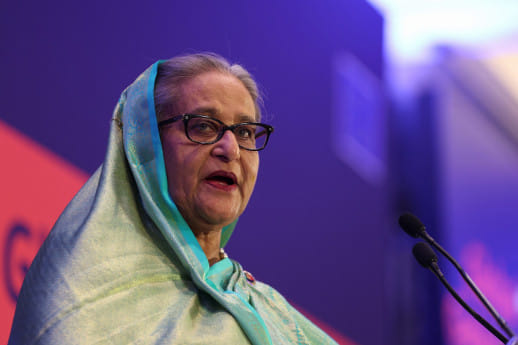
The history of Awami League (AL)—which started off as the Awami Muslim League (AML)—at 75 can be encapsulated under three headings: AL at birth; AL under Bangabandhu's leadership; and AL with Sheikh Hasina at the helm. From the time of its birth in 1949 to our liberation in 1971, AL can be credited with being either the author of or the main mover and participant in all democratic and cultural movements working tirelessly to strengthen the demand for the rights of the Bangalees in East Pakistan. No other party can claim to have singularly represented all our democratic aspirations as the Awami League during our days under Pakistan.
In the first phase, the two most important events that brought the AML to the forefront was first, the Language Movement, which united the people of East Pakistan and crystallised the efforts of AML to become the true voice of the people, and second, the 1954 provincial election under the banner of United Front (Jukta Front), in which AML was by far the biggest and most active partner, getting 143 seats as the party and 228 seats as part of the Jukta Front out of a total of 309 seats. These events marked AML's coming of age.
The 1954 election proved that there was a far deeper significance of AML's birth than many people realised then and even now. It has not been studied in depth, and its significance has not been fully evaluated in subsequent research and books that have been published since. It was the beginning of the disillusionment with the ideology of Pakistan; it was the start of questioning as to whether religion could be the only foundation of a newly formed state; it presented evidence that people lost confidence in the founding party of Pakistan, the Muslim League, which never recovered later, except under the military tutelage.
Almost all the leaders who formed the new party were integral parts of the Pakistan movement, and some of them, like Shaheed Suhrawardy and Maulana Bhashani, were its front-ranking leaders. So, why after succeeding to carve out Pakistan, would these leaders and thousands of their followers move away from the party—the Muslim League—that founded the new country?
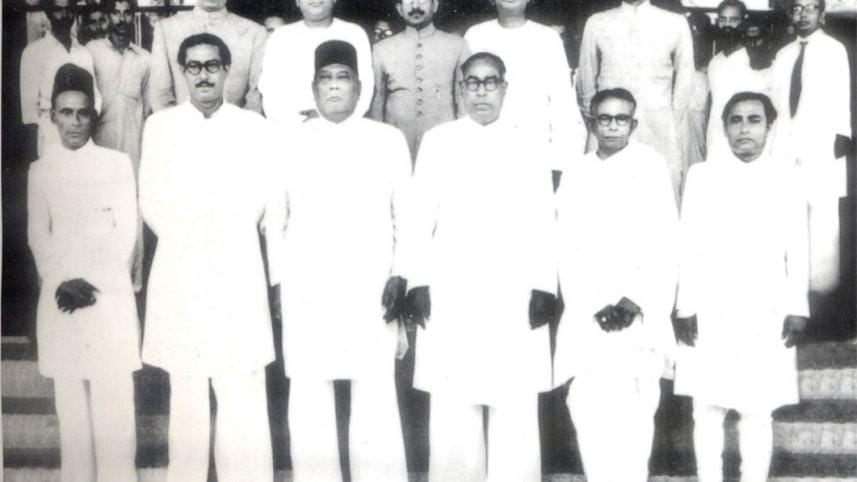
The answer is very simple. With Pakistan's birth, Muslim League suddenly revealed itself to be devoted to serve the interest of the feudal landed gentry from West Pakistan, especially that of Punjab. The so-called Pakistani leadership was not concerned with its multiple and varied linguistic and cultural heritage. Bangalees, who constituted the majority of the new country's population, found their economic rights and cultural heritage ignored and their language, Bangla, denied the status of being a state language. In fact, the death of the new country was signalled by the very man who founded it, Quaid-e-Azam Muhammad Ali Jinnah, when he declared in Dhaka, "Let there be no doubt that Urdu and Urdu shall be the only national language of Pakistan." That was the beginning of the end of Pakistan founded in 1947.
The victory in the 1970 general election, under Bangabandhu's leadership, was Awami League's biggest, most sweeping and politically critical achievement in that period. In many ways, it was the precursor to our Liberation War. That electoral victory gave AL the legal, moral and political right to speak on behalf of the people of East Pakistan, and declare independence and start the armed struggle when genocide was imposed on our unarmed people.
It was under Bangabandhu's stewardship that Awami League truly expanded its appeal to the masses and captured the imagination of the Bangalees. His was a dazzling phase—truly energising, deeply penetrating and fully capturing the attention, support and devotion of millions of ordinary people. His Six-Point Programme galvanised the people as never before and hardened their resolve to fight for their economic, cultural and political rights. Those of us, as student activists, who were witness to his meteoric rise, who had the privilege to hear his mesmerising speeches and marvelled at his courage in facing both the Pakistani elite and its formidable armed forces, and saw firsthand how he unified the Bangalees with his unmatched charisma, felt in our hearts that finally we had a leader who could realise the dream of our freedom and independence.
The victory in the 1970 general election, under Bangabandhu's leadership, was Awami League's biggest, most sweeping and politically critical achievement in that period. In many ways, it was the precursor to our Liberation War. That electoral victory gave AL the legal, moral and political right to speak on behalf of the people of East Pakistan, and declare independence and start the armed struggle when genocide was imposed on our unarmed people. AL's leadership, the role of the Mujibnagar government and especially that of war-time PM Tajuddin Ahmad were remarkable in every way. Though physically absent, Bangabandhu was present in every mukti joddha camp, and in the hearts and minds of everyone who fought for our independence.
Bangabandhu's brutal killing, along with all members of his immediate family, save the two daughters—our current PM and her sister—was the most tragic event that could have befallen us, and from which we are yet to fully recover.
Of Awami League's 75 years of existence, the last 43 have been under Sheikh Hasina's leadership. Since her return from exile in India in 1981 till date, she rebuilt AL after it suffered from deep existential crises following the brutal murder of Bangabandhu. She has not only successfully re-organised and re-energised the party, but also brought it to power in 1996, after 21 years of being in the opposition. She returned to power in 2008 and has continued till date, well on her way to completing an unbroken spell of 20 years of heading our government.
During her last 15 years of unbroken rule, she brought about remarkable advancement in the country's economic field. Her spectacular success in infrastructure development and power generation, with the capacity cost aspect being seriously questioned, is highly laudable. Bangladesh's praiseworthy rise up the development ladder can definitely be attributed to Sheikh Hasina's able and determined running of the state's affairs.
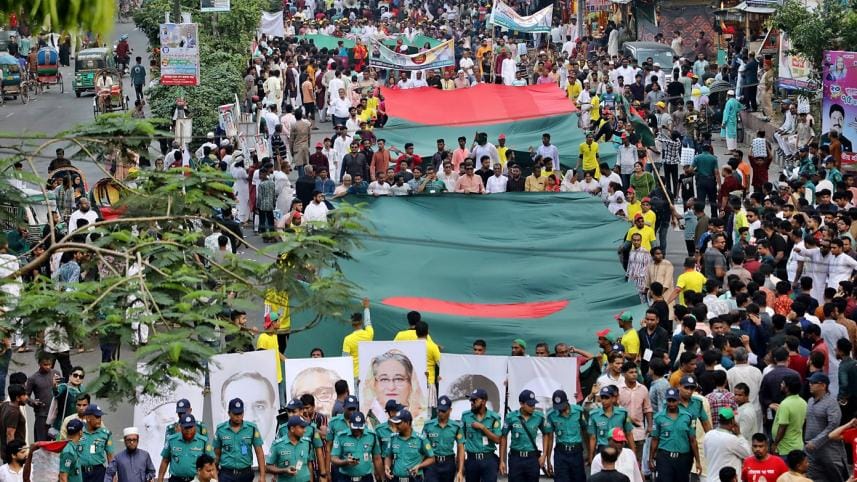
However, her grand success came with some very damaging costs. As is evidenced in history, a party in opposition and the same party in power, especially when the stay is long, presents two radically different pictures. The Awami League that began as the voice of the people has now ended up being that of an individual. The more the party stayed in power, the more its operations became centralised. From the smallest to the most significant policy decisions, they are no longer the result of debates within its ranks, but personnel choices of the leadership. From local leaders to the central, from nominations to every single post in all the levels of the elected office, the leader's wish is everybody's command.
Today, it is one of the most centralised parties anywhere in the world with the inevitable consequence of rising authoritarian tendencies in all levels of the leadership structure. The micromanagement of the party has had the same consequences as it always does: of there being no delegation of authority, no accountability at any level, and no sense of ownership of what the party does, except to carry out orders from the top.
Elections, a crucial measure of judging how a political party is faring in the public eye, is no longer valid in Bangladesh. It has lost its fundamental ability to elect genuine representatives of the people, due to both the ruling party's grip on all state institutions that guarantee free polls and the opposition's unthinking boycott of elections. Making voters insignificant has been a hallmark of the last three general elections.
As AL celebrates 75 years of its existence, there are many reasons for it to be proud of. It has many achievements that others can be envious about. Compared to many political parties in different parts of the world, AL's record can be considered exceptional.
But there are an equal number of reasons for it to be deeply concerned. Money and muscle power have replaced people's power in the day-to-day operation of this party that people once unquestioningly obeyed and unreservedly loved. Except for a few at the top, party positions today are up for grabs by the rich and the corrupt. The victory of a large number of AL's own "disobeying" candidates in the last election stands as proof as to how corrupt the original selection process was.
The party today is its own judge and jury. It only speaks to the mirror because it cannot tolerate the retort that would come if it spoke to the people. It listens only to its own music as other tunes are unpalatable. It is intoxicated by its own rhetoric and mesmerised by only those things that it wishes to see. It is a typical example of a political party living in its own bubble. And since it has monopoly control on all the levers of power, the bubble, as fragile as it is, can also be dangerous. This is so because the reality presented by the bubble can form the basis of decisions that can fatally harm us all. The handling of the issue of corruption, money laundering, misuse of power, and especially that of defaulted loans and the treatment meted out to wilful defaulters cannot be but the results of living in a bubble.
We hope we have given enough food for thought to the Awami League on its 75th anniversary.
Mahfuz Anam is the editor and publisher of The Daily Star.
Follow The Daily Star Opinion on Facebook for the latest opinions, commentaries and analyses by experts and professionals. To contribute your article or letter to The Daily Star Opinion, see our guidelines for submission.




 For all latest news, follow The Daily Star's Google News channel.
For all latest news, follow The Daily Star's Google News channel. 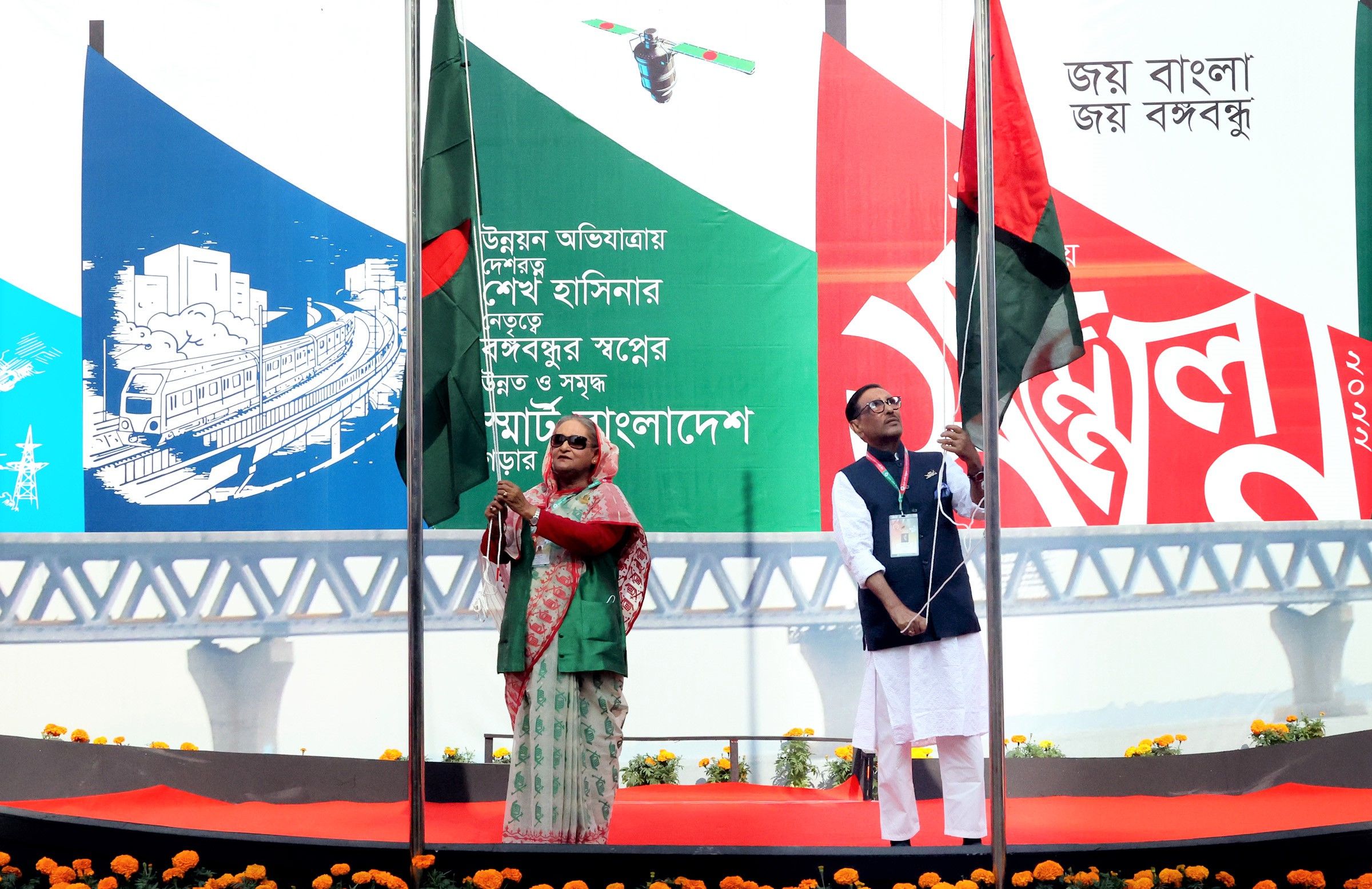

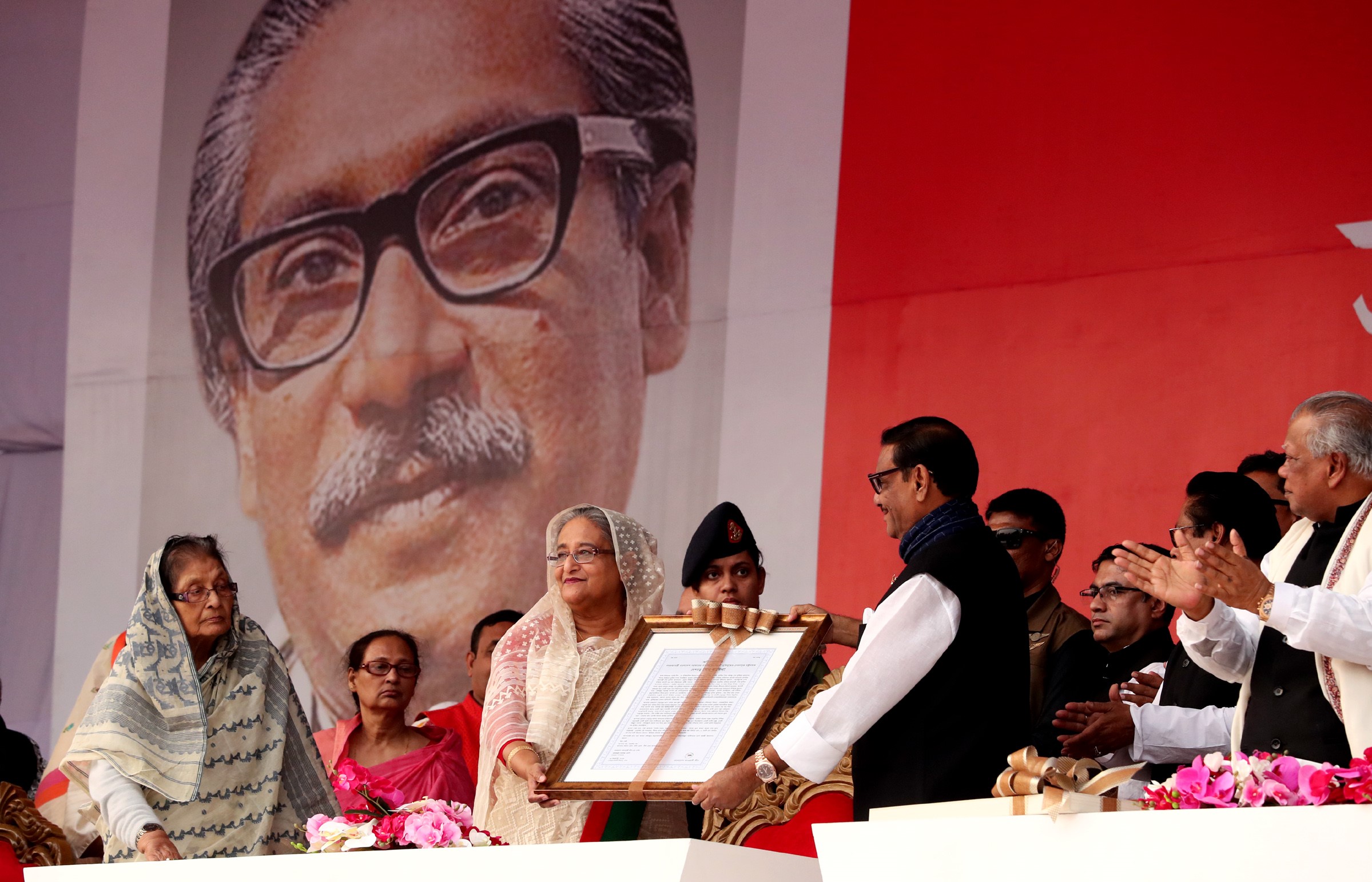
Comments